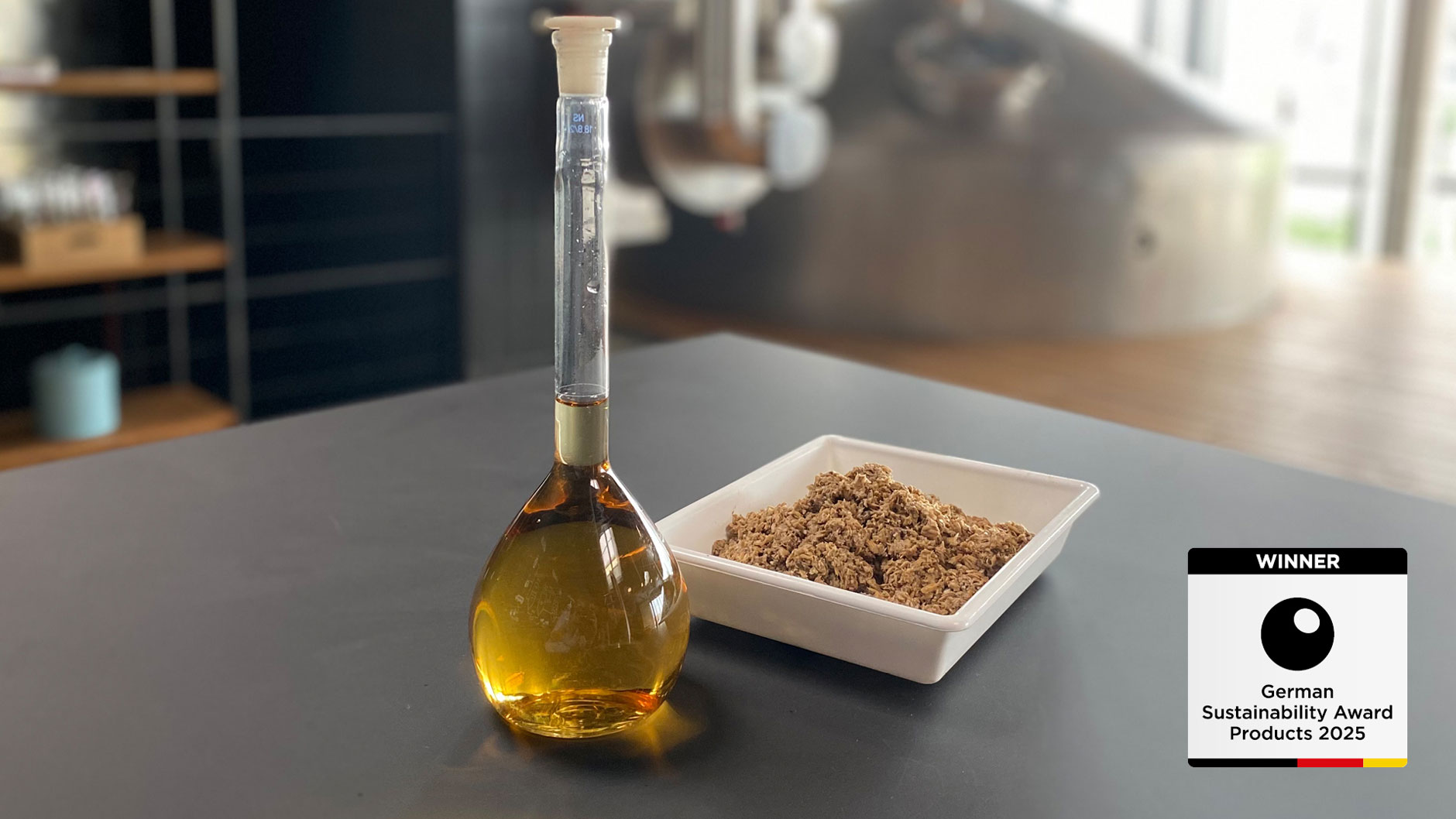Steinecker wins 2025 German Sustainability Award for “Products: Climate”

- Steinecker GmbH, a subsidiary of Krones, has won the German Sustainability Award (GSA) in the Products category, transformation field Climate.
- The award recognises Steinecker’s Phoenix BMC biomass conversion concept, which makes it possible to extract from brewing residuals proteins for food use and ammonia compounds for mineral fertiliser.
- As a result, subsequent biogas production is significantly more efficient and cost effective.
What a reason to celebrate! Steinecker GmbH, a subsidiary of Krones, has been honoured with the 2025 German Sustainability Award (GSA) in the Products category, which is being presented for the first time this year to recognise standout projects offering sustainable solutions. Steinecker submitted its biomass conversion concept Phoenix BMC for the transformation field Climate and won first place.
The principle behind Phoenix BMC is as simple as it is ingenious: Where brewery residuals have commonly been used as animal feed, Steinecker has put the concept of resource recovery on a broader footing, revolutionising it to effectively turn organic waste from the brewing process into a source of valuable substances and thus leveraging far more potential even than if it were just used for energy generation in a biogas plant.
How Phoenix BMC works
Steinecker developed Phoenix BMC as a three-module concept. In the first two modules, spent grains, malt dust and yeast are processed, first to extract a liquid protein solution known as protein hydrolysate and then to derive liquid mineral fertiliser. Because these products can be sold – the protein hydrolysate to the food industry and the mineral fertiliser to agricultural companies – the system pays for itself very quickly. But that’s not all. Separating both of these materials yields yet another benefit, which is where the third module comes into play. In it, all remaining solids are fed into a biogas plant and used to generate energy. This stage is not new in itself. But combining it with the first two modules makes it a far more efficient way to generate biogas than was previously possible. In their original form, the proteins and ammonia compounds hinder the process. Phoenix BMC removes them, thus allowing biogas generation to proceed at a much faster pace.
Phoenix BMC is a win-win for breweries – but not only for breweries. The principle of biomass conversion can be applied in all industries where nutrient-rich organic waste is generated that could be upcycled.
Steinecker has been working on the Phoenix BMC concept since 2022, and the results speak for themselves. But that’s not the only reason why the German Sustainability Award is a great honour for the Steinecker team. “Unfortunately, many measures aimed at reducing energy consumption and improving a company’s carbon footprint are very expensive and therefore not attractive to many investors. That’s why, when developing the Phoenix system, we put the upcycling of materials that would otherwise be waste front and centre, firmly rooting the circular economy right in the brewery. The concept was a huge success and we’re very proud to have received the GSA for it,” says a gratified Dr. Ralph Schneid, head of product development at Steinecker.
Krones also ranked among the GSA finalists
Incidentally, Steinecker was not the only Krones Group company in the finals for a German Sustainability Award. Parent company Krones was among the top three in the “Machinery manufacturing companies” category. “The nomination alone – and then making it into the final round – is an enormous testament to our efforts and shows that Krones is among the leaders in sustainability. This distinction validates our ongoing efforts to develop and implement innovative and sustainable solutions. We are proud to be making a positive contribution to society and for the environment and will continue to work unwaveringly on our vision for sustainability,” explains Martina Birk, Head of Sustainability.
Download

Dr. Anne-Kathrin Bräu

Peter Mörtl